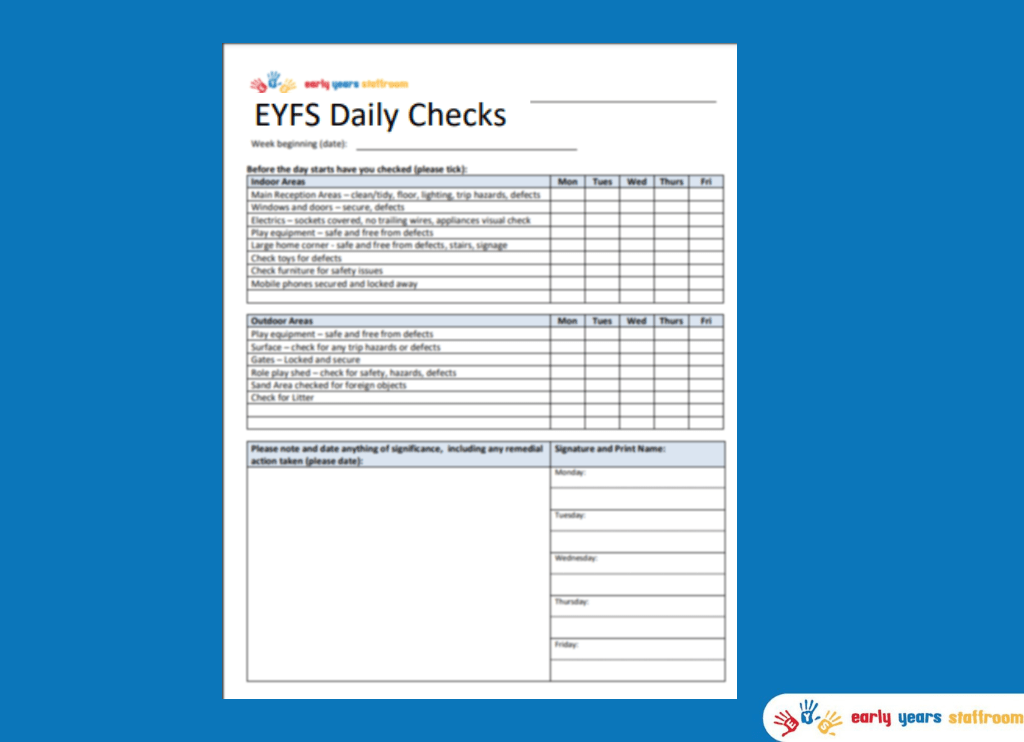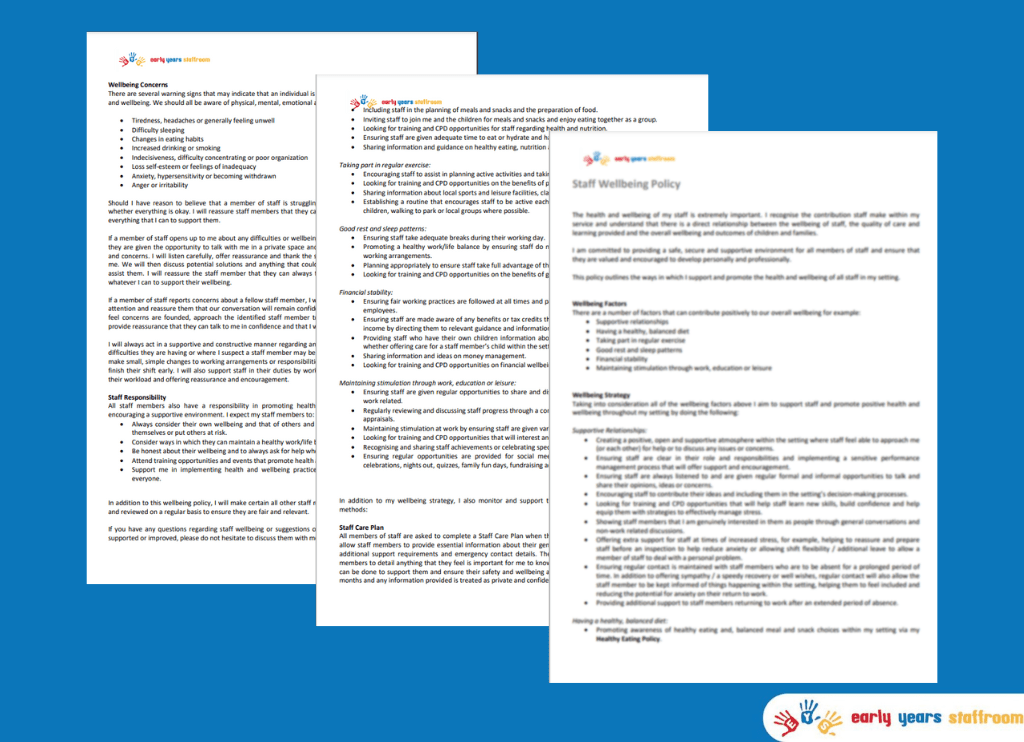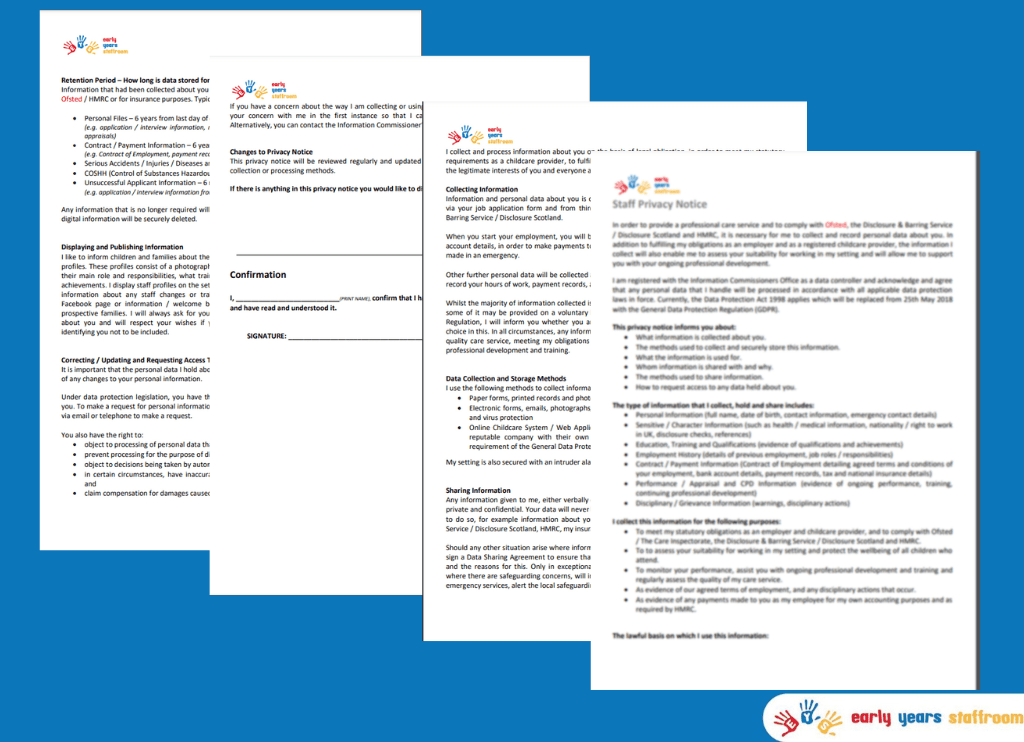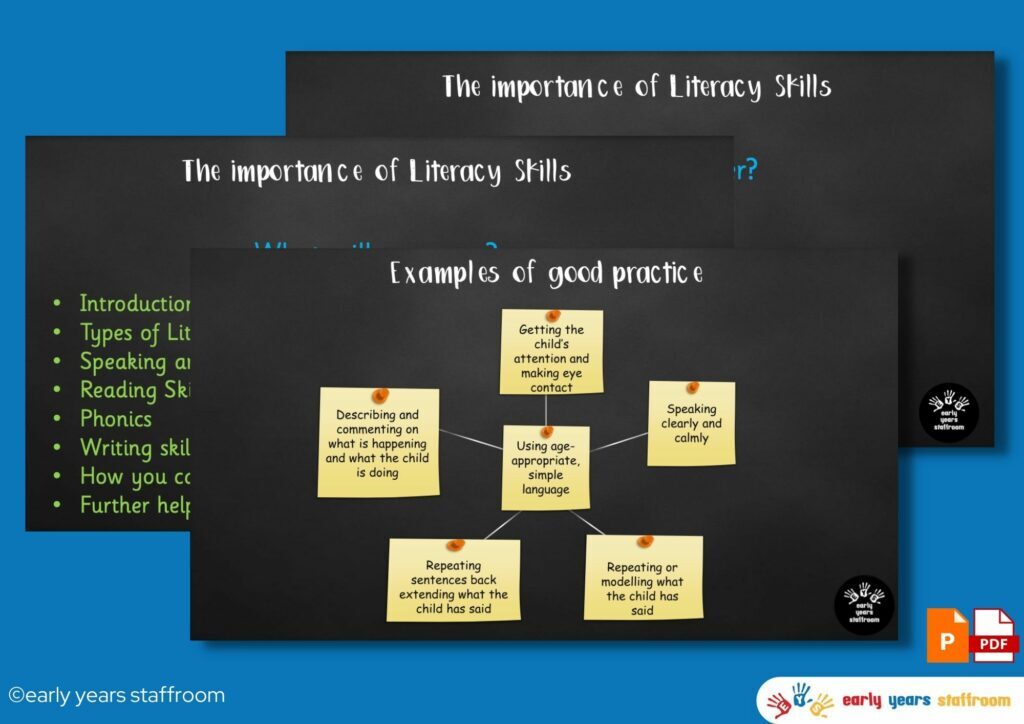EYFS Daily Risk Assessment Checks Childminder/Nursery/School

This is a checklist to use in any environment to risk assess before children start or this can be done with the children on arrival.
Daily risk assessment checks are very important in Early Years because:
Vulnerable Population: Young children, due to their age and limited experience, are more vulnerable to accidents and injuries. They often lack the judgment and awareness to avoid potential dangers, making it essential for adults to pre-emptively identify and manage risks.
Dynamic Environments: Early years settings are dynamic, with toys, equipment, and materials being continuously used, moved, or changed. A daily check ensures that hazards introduced one day are not overlooked the next.
Children’s Exploration and Curiosity: Young children are naturally curious and explorative, often leading them to unexpected places or to use materials in unforeseen ways. Regular risk assessments help anticipate and mitigate potential hazards that arise from this natural curiosity.
Emotional Well-being: A safe environment where risks are minimized contributes to children’s sense of security and well-being. When children feel safe, they are more likely to engage, explore, and learn.
Professional Accountability: Staff in early years settings have a professional responsibility to ensure the safety of the children in their care. Daily risk assessments demonstrate a commitment to this duty.
Legal and Regulatory Compliance: Many countries have stringent regulations regarding child safety in educational and care settings. Regular risk assessments help ensure that these institutions remain compliant and avoid potential legal repercussions.
Building Trust with Families: Parents and guardians entrust the safety of their children to early years providers. Knowing that a daily risk assessment is conducted helps build and maintain that trust.
Changing Needs: As children grow and develop, their needs and behaviours change. What was safe for a group of toddlers might not be safe for older pre-schoolers. Daily assessments ensure that risks are evaluated in line with the developmental stage of the children.
Preventing Long-term Consequences: Injuries or traumatic events during early childhood can have long-lasting physical or emotional impacts. By assessing and mitigating risks daily, settings can help prevent such long-term consequences.
Enhancing the Learning Environment: A safe environment isn’t just about preventing harm. It’s also about creating an atmosphere where children can freely explore and learn without unnecessary restrictions. By identifying and managing risks, settings can strike a balance between safety and freedom of exploration.
In conclusion, daily risk assessments in early years settings are essential to ensure the safety, well-being, and optimal development of young children, while also meeting professional and legal obligations.
All our planning has been carefully created by experienced qualified primary school teachers with QTS therefore you can be sure that your planning will achieve your outcomes and aims.
Not quite what you were looking for? Search by keyword to find the right resource, or please email us to request a resource at admin@earlyyearsstaffroom.com.













